Yesterday I had the opportunity to go on a snorkeling dive with Rich Mooi, curator of invertebrate zoology at the Cal Academy. Dr. Mooi is one of the principal investigators of the expedition and an expert on marine invertebrates, particularly sea urchin. He’s also an amazing illustrator and science educator. So really a triple threat!
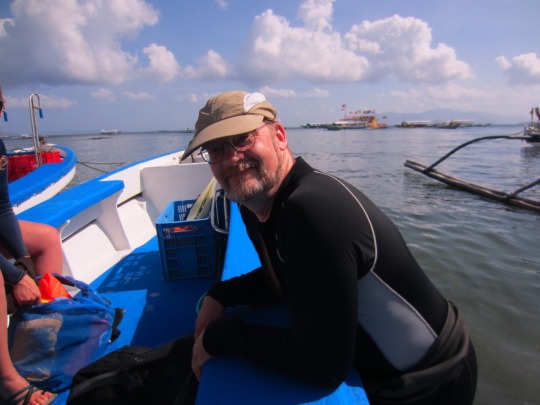
I set out in the morning with Rich, Meg Burke, and Lindzy Bivens from the Academy, and two local Filipino researchers.
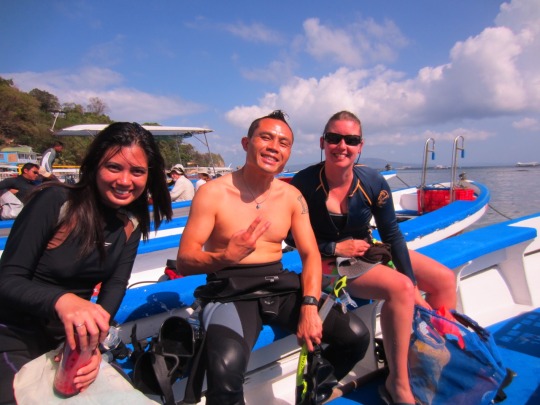
After suiting up, we rode a small boat for about 30 minutes to our snorkel site called “Boulders” not far from our expedition headquarters in Sabang. Rich gives us the run down of what we are likely to encounter and what our plan of attack is.
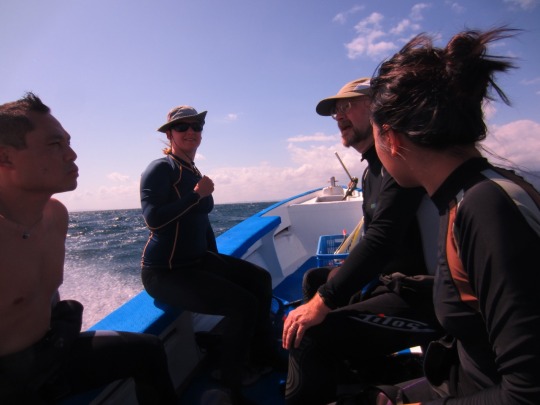
The dive site was incredibly pictureque and charming. In this one small area, we had a colorful colony of coral, a sandy section full of marine life, a dense section of eel grass to swim through, and a copse of mangrove trees growing right up to the water. There was a lot to explore just one small cove!
There were of course a lot of sea urchin and sea urchin tests (shells) to check out. This little guy covers himself in debris around the immediate vicinity, apparently for some camoflage and to protect himself from the sun.
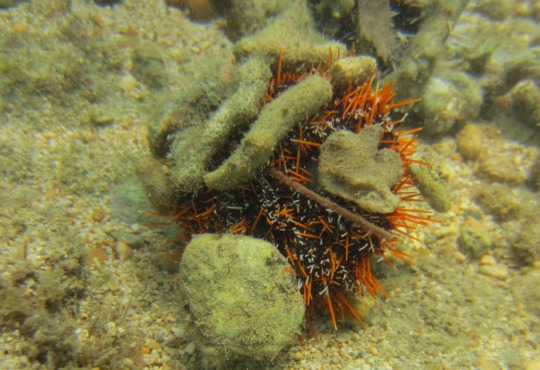
This huge sea cucumber was really cool. One of the Filipino researchers specializes in sea cucumbers, so he collected several neat specimens to take back.
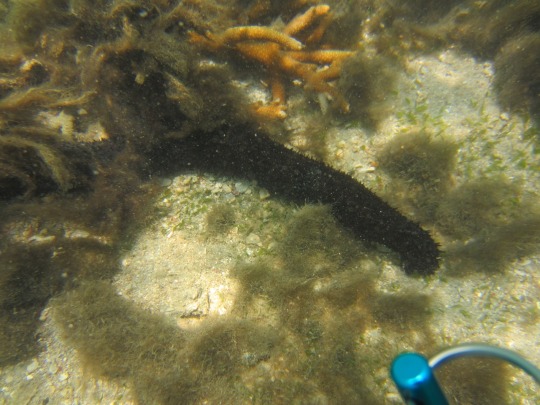
Chocolate chip sea stars are my favorite sea stars I’ve encountered so far! There’s lots of neat variations in their coloring.
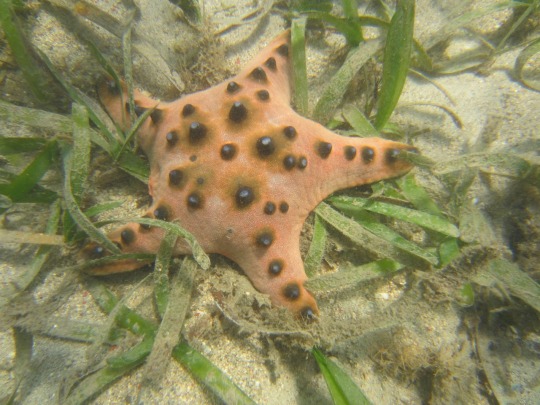
And here’s a brittle star that I got to hold gently before putting her back.
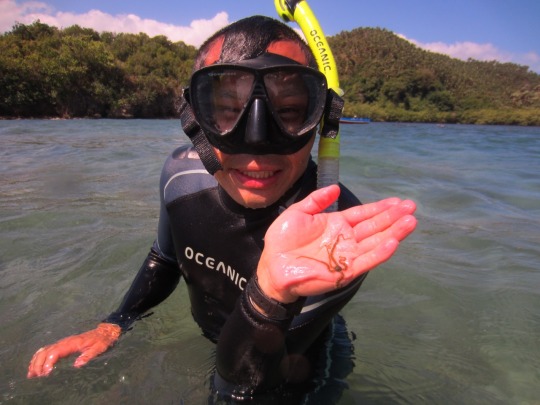
I honestly don’t remember what species Rich told us this guy was. But he certainly did not look too pleased that we were bothering him.
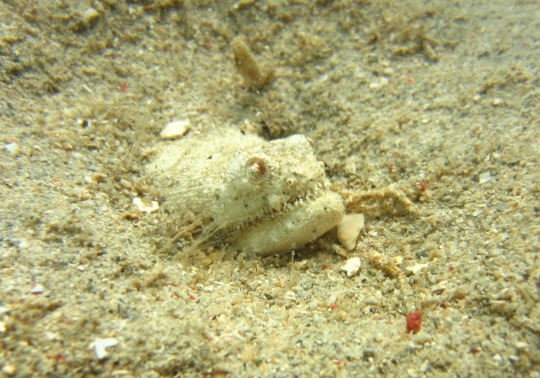
One of the coolest moments was toward the end of our two-hour dive. Rich beckons us over to where he is standing.
“This is a look-but-don’t-touch,” Rich cautions us.
Then he has us stick our faces in to look at what appears to be… a rock. I don’t really know what I’m supposed to be looking at or noticing. Then Rich starts to gingerly remove bits of coral, shell, and debris to reveal a startlingly beautiful flower urchin. It was like a magic trick.
I got a newfound appreciation for the depth and breadth of Rich’s knowledge of marine life, and his ability to reveal it’s wonder to others.
While not the most exciting outing in terms of new discoveries, it was important that we did a thorough investigation of the area as part of our overall expedition goals to document the biodiversity of this very special ecosystem of the Verde Island Passage. I’m so glad that I get to play a very small part in that.
